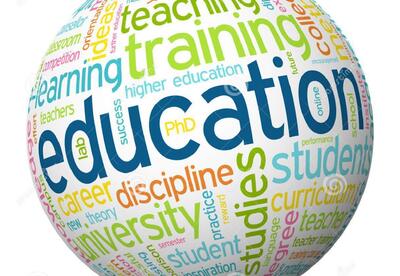Hearing Impairment Support
Hearing support services are provided for students whose hearing loss is such that it impacts their progress within the general education curriculum. According to the Individuals with Disabilities Education Act (IDEA), a hearing impairment is an impairment in hearing — whether permanent or fluctuating — that adversely affects a child’s educational performance. A student who is deaf possesses a hearing loss that is so severe that the child is impaired in processing linguistic information through hearing, with or without amplification.
Service delivery models include consultative, direct itinerant individual or small group pull out, push-in and classroom-based programs.
With the intervention of comprehensive educational programming and the use of assistive listening devices, the instructional staff strives to optimize the student’s communication skills and overall potential.
Audiology and Assistive Technology
Audiology is the study of hearing. As a body of science, it is concerned with the physics of sound, the anatomy and physiology of hearing, the disorders of hearing, and oto-neurological disorders of hearing. As a discipline within the health care industry audiologists evaluate, diagnose and provide non-medical treatment of hearing disorders.
Intermediate Unit 1 has a full-time educational audiologist who provides diagnostic services, consultation, prescriptions for state of the art amplification devices (i.e., hearing aids, FM systems, sound field systems, etc.) and general consultation to constituents within Washington, Greene, and Fayette Counties. In summary, the responsibilities of the audiologist can be grouped into the following categories:
- Hearing conservation
- Identification of hearing loss
- Assessment of hearing loss and other abilities
- Amplification and other assistive technology
- Educational planning and support
- Direct habilitative and rehabilitative services
- Family support
- Staff training
- Conduct functional listening evaluation
- Complete assessment for Central Auditory Processing Disorders
Audiological support may be accessed by contacting the program supervisor directly and following the required special education referral procedures for evaluations and the procedures for consideration of assistive technology.
For more information, please contact:
Melanie Naylor M.S., CCC-A
Audiologist and Local Assistive Technology Consultant for Hearing Impairment
724-938-3241 ext. 518
melanie.naylor@iu1.org
Interpreting Services
Sign language interpreting is the process of facilitating communication between individuals whose native language is spoken English and those whose native language is American Sign Language or another manual communication system (i.e., Signed Exact English, Pidgen Sign Language, etc.). An educational interpreter acts as an intermediary in a communication-related situation so that participants, both deaf and hearing can understand each other.
Full time educational interpreters are employed by Intermediate Unit 1 to support our students with deafness in the school environment. Interpreting services are a requisite to ensure that our students are included in all activities and functions within the educational community.
Educational interpreters are required to attain a minimum score of a least 3.5 on the Educational Interpreter Performance Assessment (EIPA).
Downloads
Online Resources
National
- Alexander Graham Bell Association for the Deaf
- American Association of the Deaf Blind
- American Society for Deaf Children
- American Speech-Language-Hearing Association
- Captioned Media Program, National Association of the Deaf
- Cochlear Americas Online Training & Education
- College Help for Hard of Hearing and Deaf Students—Best Colleges.com
- College Resources for the Hearing Impaired | OC.net
- Deaf Resource Library
- Gallaudet University
- National Association of the Deaf
- Registry of Interpreters for the Deaf, Inc.
- Telecommunications for the Deaf, Inc.
- Yahoo! Groups: Deaf and Hard of Hearing (DHH) Itinerant Teachers
State and Local
Pennsylvania Schools for the Deaf
Hearing Impairment Support
For More Information
For more information about the Hearing Support Services program at IU1, please contact:
Dr. Kristin J. Szewczyk
Assistant Executive Director/Title IX Coordinator
724-938-3241 ext. 242
kristin.szewczyk@iu1.org
Sara Hoffman
Supervisor of Speech, Vision, and Hearing
724-938-3241 ext. 275
sara.hoffman@iu1.org









